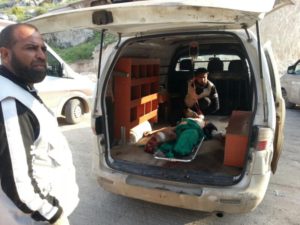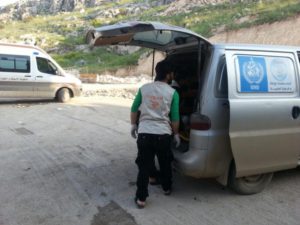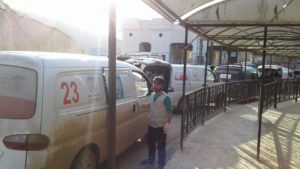UOSSM condemns this attack and the wanton violence against civilians in the strongest possible terms. UOSSM reiterates its commitment to impartiality, neutrality and humanitarian service by providing free medical aid to the people of Syria regardless of race, religion, gender or political affiliation.
UOSSM calls on ALL parties to take responsibility for these atrocities and consequent suffering levied against families and civilians. All parties must work sincerely towards a peaceful resolution. The past few weeks have seen a drastic escalation of phosphorous, napalm and barrel bomb attacks against civilians. These attacks must stop and International Humanitarian Law must be enforced. The UN and impartial international observers must take a more active role to protect civilians and prioritize their safety.
Dr. Khaula Sawah, board member of UOSSM USA said, ” It is bad enough that these people have been forced out of their homes, leaving their memories and their lives behind, only to find themselves facing even more suffering from these atrocities. I wish that all parties could find a solution and stop the suffering of these people so they can live their lives normally just like everyone else.”



